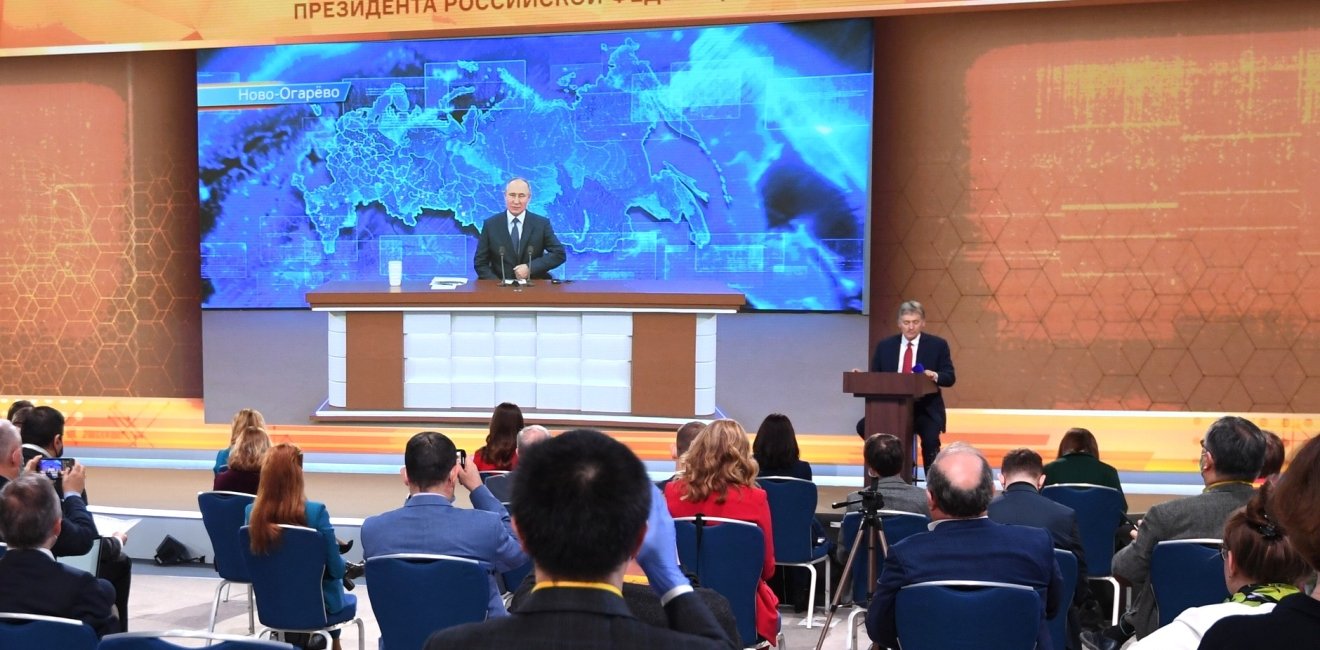
A blog of the Kennan Institute
BY STEFAN MEISTER
The rise of China, the decline of the United States, and the emergence of a multipolar world are often mentioned in debates about the changing international order. But there is a key trend that is not sufficiently discussed yet: a further disintegration of the post-Soviet space, with all its consequences.
Societal change is a powerful driver in all post-Soviet countries, be they Belarus, Kyrgyzstan, or Armenia. Russia lacks soft power, and its foreign policy toolbox is getting smaller. The use of military means and force have become the key elements of Russian foreign policy, especially in its “near abroad” but increasingly in more distant arenas like Syria and Libya as well. The more Russian leadership uses force in Russia’s neighborhood to try to prevent the post-Soviet countries from leaving its sphere of influence, the more Moscow pushes those countries away.
Two key trends will further shape Russia’s role in the post-Soviet region. The first is societal change, which cannot be stopped. The second relates to new powers coming into the picture not only because of Russia’s weakness but also because of the post-Soviet countries’ drive to balance Russia’s influence in the region. Russia is often seen by post-Soviet countries not as a partner or ally but as a security risk.
Societal Change and Ruler Stagnation
Aleksandr Lukashenko, who has been ruling Belarus for 26 years now, has lost his legitimacy across all of Belarusian society because of a rigged election, but also because he himself did not change even as Belarusians have been changing. The Belarusian people want to be respected as citizens who participate in public life. They do not want to be seen as a passive mass that, every five years, confirms in power the same aging man. While Lukashenko uses brute force to stay in power, Moscow supports his survival because he secures the distance between NATO and Russia’s western border.
The Kremlin does not accept political change through street protest because it sets the wrong example for Russian society, as well as for the entire region. Belarusians are the most Russia-friendly society among the post-Soviet countries. They do not want to choose between Russia and the West; they just want to have an opportunity to decide who rules their country. But even that is too much sovereignty from Moscow’s perspective. For Russia’s ruling elites, societies are not actors but masses that can be manipulated either by domestic propaganda or by external actors (such as the West) intent on changing a country’s (authoritarian) leadership. The crucial mistake of Russia’s ruling elites, with their mindset of intelligence officers, is underestimating the power of society. It’s already clear from Ukraine’s history how Russia lost society’s approval through its support for former president Viktor Yanukovych and, with the annexation of Crimea and the war in Donbas, helped create a Ukrainian nation. The same will now happen in Belarus, even if Lukashenko has survived for the time being.
Balancing Russia
The latest war in Nagorno-Karabakh in the South Caucasus exposes several trends. The region has seen the arrival of third powers, such as Turkey, that are close allies of post-Soviet countries (Azerbaijan, in the case of Turkey) to help them offset Russia’s influence and power and at the same time to try to gain leverage with Moscow by stepping up their activity in the region. For post-Soviet countries the main security challenge is to balance Russia’s political and military influence. If the United States, NATO, or the EU are not able to provide security, other players, such as Turkey or China, are looking more and more attractive as partners. In the Second Nagorno-Karabakh War in the autumn of 2020, the entrance of Turkey, with its military and political support for Azerbaijan, proved to be a game-changer.
Turkey is increasingly discussed by countries such as Georgia and Ukraine as an alternative security partner. While challenging Russia in its near abroad, President Recep Tayyip Erdoğan improved his bargaining position with respect to Moscow in Syria and Libya. The ceasefire agreement negotiated by Moscow with Azerbaijan and Armenia aimed to keep Turkey and the West out of the region. But none of the parties to the conflict are happy with this declaration, and the fragile peace it imposed can quickly fragment into renewed hostilities. Azerbaijan now has Russian troops on its territory; Armenia is even more dependent on Russian security guarantees, though it no longer trusts Moscow; and Turkey waits for the moment to establish an even greater role for itself in the region.
Russia’s short-term solutions to problems in its neighborhood are not sustainable because Moscow is reacting to conflicts mainly by force and does not take the population’s needs into account. Additionally, Russia is lacking civil instruments of conflict resolution. What we can expect within the next five years of Russian “peacekeeping” in Nagorno-Karabakh, the period initially stipulated in the agreement, is the stealthy alienation of all regional countries from Russia. The alienation with Georgia started in 2008, with Ukraine, latest, in 2014.
Who Will Fill the Gap?
If Russia is losing its ability to contain the erupting regional conflicts, who will fill the power gap? Turkey, China, Iran? They can balance Russia’s influence, but they too will make deals at the cost of society. The EU’s and United States’ disengagement from the entire region weakens democratic actors and civil society. There is no alternative for the Belarusian or Armenian civil society than democratic countries. If EU member states and the United States do not develop a policy for stabilizing eastern Europe, the South Caucasus, and Central Asia, a political and security vacuum will grow.
To weaken and alienate through inaction democratic actors and civil society in these countries undermines the EU’s goal of stabilization, democratization, and pursuit of the rule of law. There is a need for a serious discussion about Russia as a declining power that acts primarily as a spoiler rather than as a responsible actor. Even worse, as a declining power, it will not only act more aggressively with its shrinking means of influence, it will be less and less able to fix short-term security problems in the region. The outsourcing of security problems in post-Soviet countries to an external authoritarian player is no longer an option.
Despite its internal weaknesses and current democratic deficits (Hungary, Poland), it is the EU that offers good governance, civil rights, the rule of law, and civil means of conflict resolution and reconciliation. Turkey is attractive not only because it challenges Russia but also because it is a member of NATO and economically integrated with the EU.
The EU needs to beef up its toolbox. Strengthening multilateralism requires first of all taking a leading role in institutions such as the Organization for Security and Cooperation in Europe. EU member states must be willing to provide peacekeeping forces while at the same time underlining their readiness to resolve conflicts using military means. The EU should use its economic power to challenge the economic basis for authoritarian rulers like Lukashenko. To challenge authoritarian rule in the post-Soviet region, the EU needs proactive democracies, and thus needs to offer nations on Europe’s fringe a way to become part of the club. The authoritarian regimes in Minsk and Moscow look much stronger than they are; their main challenge comes not from the West but from their own societies.
The opinions expressed in this article are those solely of the author and do not reflect the views of the Kennan Institute.
Author


Kennan Institute
The Kennan Institute is the premier US center for advanced research on Eurasia and the oldest and largest regional program at the Woodrow Wilson International Center for Scholars. The Kennan Institute is committed to improving American understanding of Russia, Ukraine, Central Asia, the South Caucasus, and the surrounding region through research and exchange. Read more

Explore More in The Russia File
Browse The Russia File
Chechnya as a Model of Modern Russia

Russia’s Indigenous Communities and the War in Ukraine

Gas and Power in a Changing US–Russia Relationship

